 PHOTO: Mary van Balen On February 18, Buddhists in Thailand celebrated Makha Bucha Day or Sangha Day. It commemorates the unplanned yet simultaneous appearance of 1,250 disciples before the Buddha nine months after his enlightenment. They paid him reverence and listened to him before setting out around the country to spread the teachings which became the root of Buddhism.
PHOTO: Mary van Balen On February 18, Buddhists in Thailand celebrated Makha Bucha Day or Sangha Day. It commemorates the unplanned yet simultaneous appearance of 1,250 disciples before the Buddha nine months after his enlightenment. They paid him reverence and listened to him before setting out around the country to spread the teachings which became the root of Buddhism.
“You lucky to be in Thailand now,” a friend of mine said. “February a holy month for Buddhists. You go to temple, buy lotus and candle, and walk with the people three times around temple.”
I did. Sandra and I took a taxi to a nearby temple. The young Thai driver parked the car and led us through the rituals. We wended our way through vendors of flowers wrapped with three incense sticks and a deep yellow candle. We walked past a few people selling small wooden cages of birds, or so it seemed. Actually, they were selling the opportunity to set the birds free, a symbol of peace and freedom for the people.
The procession, called Vien tien, moved slowly clockwise around the temple with the people remembering the Three Jewels of Buddhism: the Buddha, the Dharma, and the Sangha. As I walked I again prayed to the Holy One who created us all for peace and justice in this world.
Once people have walked three times around the temple hall, they removed their shoes, climbed the steps and placed the flowers, incense, and candles before statues of Buddha.
I looked up at the full moon in a hazy sky, and then at the people gathering in the green space around the building, waiting for the monks to arrive to lead them in prayer. They gather to pray, to seek truth, to live good and holy lives.
We crossed the main street that had been blocked off and bought some festival food: a cup of juicy sweet corn, sugared and salted, and some small pastries topped with meringue and shredded egg, orange for spicy, yellow for sweet.
Once the monks arrived, the people became quiet. He began to pray. Sandra and I stayed a bit longer and then motioned to the taxi driver that we were ready to leave.
I looked out the window and reflected on my faith. Jesus came to reveal God’s compassionate face, the Divine love for every one, especially the outcast and poor, and to show us the way to live, allowing the Sacred Presence to Grace us and transform the world through us.
On their holy day, my Buddhist friends were reverencing the Buddha, his teachings, and the community of holy men and women who continued to teach his way. They reverenced the community of Buddhists around the world, past and present, who strive to be faithful to their beliefs.
I thought about my own community, my small group who gather each month to eat, pray, and encourage one another on our way. I thought about the little parish church where I celebrate Sunday liturgy along with a diverse group who welcome all, including me. I thought about the larger community of those past and present, who try to follow the example of Christ.
I thought of the people on this planet holding a myriad of beliefs, of so many journeys, so many hearts longing for Good, and I asked the Holy Spirit’s blessing on us all.
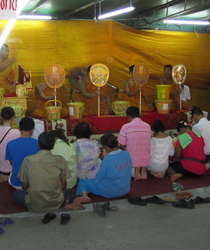
 PHOTO: Mary van Balen
PHOTO: Mary van Balen 
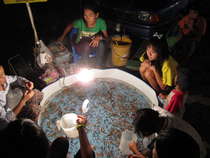
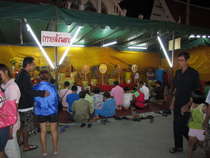 There is a variety of gifts but always the same Spirit; there are all sorts of service to be done, but always to the same Lord; working in all sorts of different ways in different people, it is the same God who is working in all of them.
There is a variety of gifts but always the same Spirit; there are all sorts of service to be done, but always to the same Lord; working in all sorts of different ways in different people, it is the same God who is working in all of them.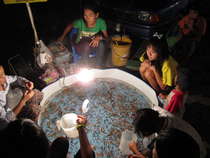 As I wandered through the temple grounds, many sights reminded me of parish festivals at home: children hoping to take a gold fish home, games, rides, and lots of food. Of course, plenty of things were different: Monks were chanting as were ever changing groups of laypeople who, after offering orange buckets filled with ordinary items for the monks daily use, knelt and joined in their prayer. No hotdogs or cotton candy, but roasted chestnuts and sweets that included sweet corn as well as chocolates.
As I wandered through the temple grounds, many sights reminded me of parish festivals at home: children hoping to take a gold fish home, games, rides, and lots of food. Of course, plenty of things were different: Monks were chanting as were ever changing groups of laypeople who, after offering orange buckets filled with ordinary items for the monks daily use, knelt and joined in their prayer. No hotdogs or cotton candy, but roasted chestnuts and sweets that included sweet corn as well as chocolates.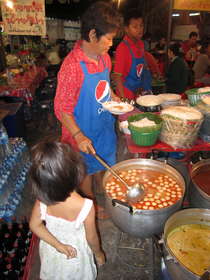 As Paul continues in 1 Cor.: “God has arranged the body and that there may not be disagreements inside the body, but that each part may be equally concerned for all the others. If one part is hurt, all parts are hurt with it. If one part is given special honour, all parts enjoy it.”
As Paul continues in 1 Cor.: “God has arranged the body and that there may not be disagreements inside the body, but that each part may be equally concerned for all the others. If one part is hurt, all parts are hurt with it. If one part is given special honour, all parts enjoy it.” 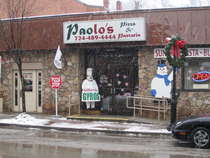
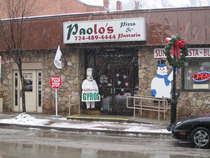 This snowy winter day found me walking the streets of Charleroi, Pennsylvania. Actually, I was doing more slipping and sliding than walking. Anyone could tell by my gingerly pace and occasional grasp at a parking meter for balance that I am basically a flatlander who, while used to messy slush, had little experience with walking through it up and down hills.
This snowy winter day found me walking the streets of Charleroi, Pennsylvania. Actually, I was doing more slipping and sliding than walking. Anyone could tell by my gingerly pace and occasional grasp at a parking meter for balance that I am basically a flatlander who, while used to messy slush, had little experience with walking through it up and down hills. 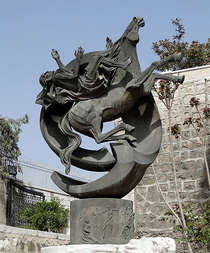


 Death was not Gods doing, he takes no pleasure in the extinction of the living. To be for this he created all; the worlds created things have health in them, in them no fatal poison can be found, and Hades holds no power on earth; for virtue is undying. Wisdom 1:13-15
Death was not Gods doing, he takes no pleasure in the extinction of the living. To be for this he created all; the worlds created things have health in them, in them no fatal poison can be found, and Hades holds no power on earth; for virtue is undying. Wisdom 1:13-15 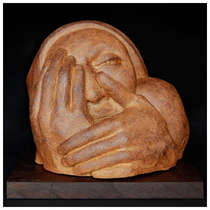
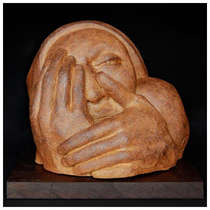
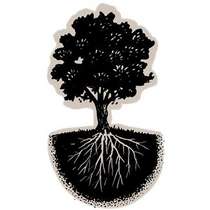
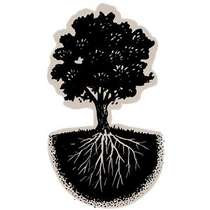
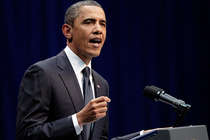
 There is a river whose streams make glad the city of God,
There is a river whose streams make glad the city of God,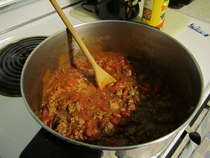
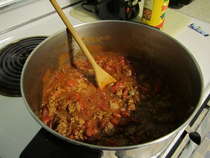 “Getting ready for the snow storm?” I asked as I handed the customer her bag of Cuddle Duds long johns.
“Getting ready for the snow storm?” I asked as I handed the customer her bag of Cuddle Duds long johns.